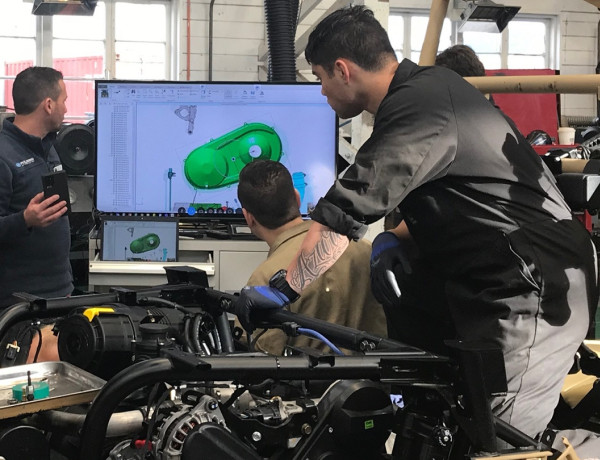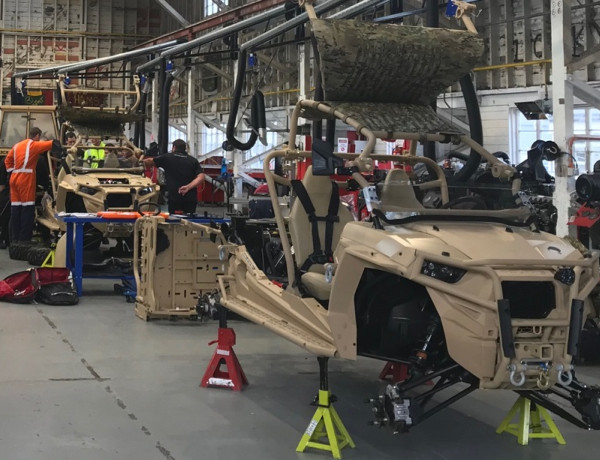Life in lockdown last year didn’t stop Ministry of Defence, NZDF and Polaris personnel finding new and innovative ways to remotely train MRZR auto technicians, drivers and trainers.
When New Zealand went into lockdown in March last year, the Ministry of Defence and NZDF team working to deliver a fleet of MRZR vehicles from the USA had to work quickly, to make sure the vehicles would be ready to roll out when restrictions eased.
COVID-19 related travel restrictions stopped Polaris technicians from the USA coming to New Zealand, to provide the specialist training needed to safely maintain and operate the vehicles.
New Zealand’s Lockdown restrictions also proved challenging for the team delivering the Protected Mobility Capability Project (PMCP), forcing them to work from home, navigate new transport restrictions, and reassign some staff to the all-of-government COVID-19 response.
In order to prevent delays, the team worked with Polaris personnel in New Zealand and the USA to come up with innovative training courses for auto technicians, drivers and trainers.
“Normally, when new vehicles arrive we progress to operator training and certification quickly, so they can hit the road as soon as possible”, said Ministry of Defence PMCP Lead, Gillian Rodger.
“Because we couldn’t get specialist instructors out from the States, we started working with Polaris to prepare a series of remote courses, which could be taught to Army personnel as soon as restrictions reduced,” she said.
PMCP team members worked with Polaris USA staff to come up with a training system that met the Army’s standards.
“After the restrictions eased, we set up large monitors that use Wi-Fi signals in our Trentham Camp workshop, as well as secure video conferencing technologies and 3D CAD diagrams. This technology meant auto technicians could work on the vehicles and get live instructions and observations from instructors in the States”.
“The training covered electrical systems, mechanical systems, maintenance and services - the whole gambit. Ultimately, all the different elements of remote working came together without a hitch, and we were able to interact and learn from the instructors with ease”.
The project’s Lead, Gillian Rodger, says the US-based worked late into the night to conduct the training.
“It was a great result and we are grateful for their hard work. It is so rewarding to see Army personnel get the skills and accreditations they need to operate the vehicles, in such a challenging environment”, she said.
The fleet of six MRZR are now being introduced into service with the High Readiness Task Unit, 1RNZIR, based in Linton Military Camp. They have already been used by company commanders in a combat training exercise in Waiouru, undertaking a broad range of reconnaissance, screening, flank security and convoy tasks.
The MRZR are designed to drive off-road in difficult terrain, carrying up to four personnel and combat supplies, and can also be transported by the C-130 Hercules, NH90 helicopters and HMNZS Canterbury. They are replacing small Army vehicles, like quad bikes and motorcycles, which are reaching the end of their operational life.


